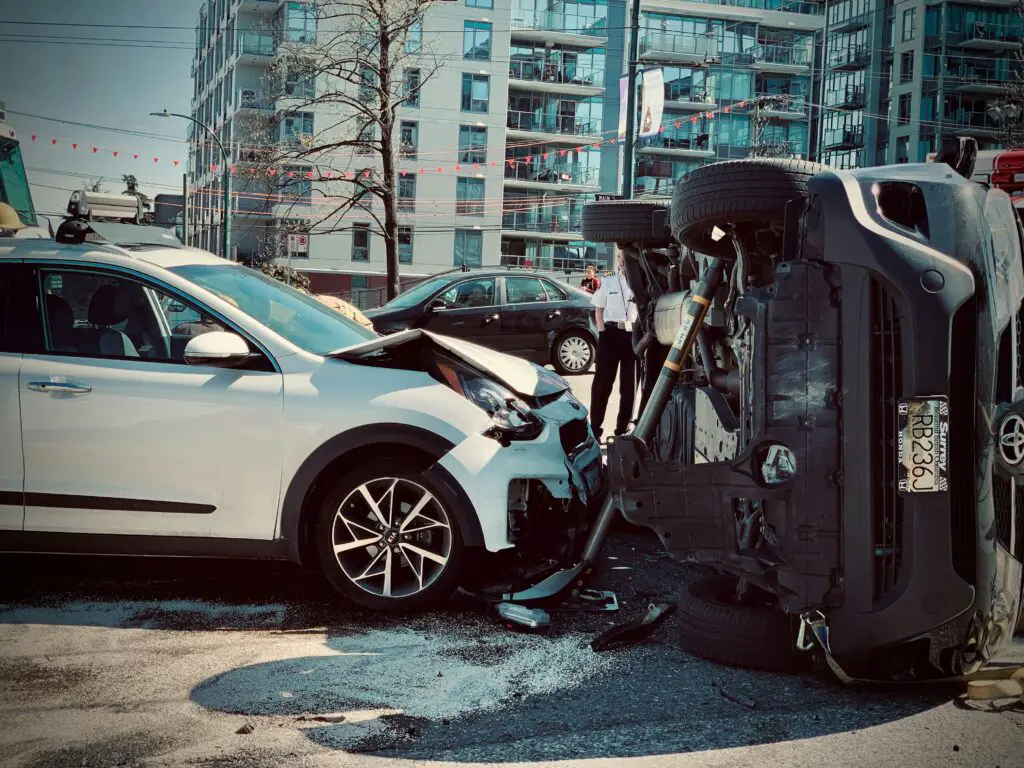When a Vehicle is Totaled
A totaled vehicle is a significant concern for any car owner. This guide delves into what it means when a vehicle is totaled, the insurance process, and how to navigate the situation effectively.
Definition of a Totaled Car
Insurance Industry Perspective
A vehicle is considered totaled when the cost of repairs exceeds its value.
Key Factors
- Cost Thresholds: Many states use a percentage (e.g., 70%-80%) of the car’s pre-accident value as the benchmark.
- Market Value: The vehicle’s Actual Cash Value (ACV) before the accident is a critical reference point.
Safety Considerations
Some cars are deemed totaled not only for financial reasons but because they are unsafe to drive.
Structural Integrity
- Even repaired vehicles might have compromised safety features or frame damage.
- Severe structural damage could render repairs unviable.
Factors in Total Loss Determination
Vehicle Value Assessment
How Value is Determined
- ACV Calculation: Insurers calculate based on the car’s pre-accident condition, mileage, and market trends.
- Depreciation: Older vehicles with significant wear are valued lower.
Repair Cost Estimation
Hidden Costs
- Insurance adjusters account for potential hidden damages.
- Parts and labor expenses can escalate rapidly.
Insurance Coverage and Total Loss
Types of Insurance Coverage
Collision Coverage
Protects against damages caused by accidents with other vehicles or objects.
Key Points
- Coverage is subject to a deductible.
- Essential for financed vehicles.
Comprehensive Coverage
Covers non-collision incidents, such as theft, vandalism, and natural disasters.
Examples
- Storm damage
- Falling objects
Liability Coverage Limitations
Does not cover the insured’s vehicle but protects against damages caused to others.
Specialized Insurance Options
Gap Insurance
Helps cover the difference between the ACV and the remaining loan or lease balance.
Importance
- Beneficial for new or leased cars.
Loan/Lease Payoff Coverage
Similar to gap insurance but with narrower applicability.
Navigating the Total Loss Process
Initial Steps After an Accident
- Ensure safety and seek medical help if necessary.
- Contact your insurance provider immediately.
- Document the accident scene, including photos of damages and surroundings.
Insurance Claim Filing
Reporting the Claim
- Use online portals, mobile apps, or phone-based support for submission.
- Provide all requested documentation promptly.
Working with Insurance Adjusters
- Prepare for vehicle inspections.
- Offer detailed records of vehicle condition, including upgrades or maintenance history.
Disputing Total Loss Decisions
Challenging Vehicle Valuation
- Research comparable vehicle prices in your area.
- Present receipts for any recent repairs or upgrades.
Independent Appraisals
- Seek third-party assessments if the insurer’s valuation seems inaccurate.
- Consider the cost before proceeding.
Financial Implications of Total Loss
Insurance Settlements
Settlement Calculation
- Insurers subtract deductibles from the ACV to determine payout amounts.
Managing Outstanding Loans
If the settlement doesn’t cover the loan balance, you may need to pay the difference or explore refinancing options.
Post-Total Loss Options
Replacing Your Vehicle
New Car Purchase Tips
- Leverage settlement funds as a down payment.
- Compare financing options carefully.
Keeping a Totaled Vehicle
Salvage Title Process
If you choose to retain your vehicle:
- The car will receive a salvage title.
- Insurance companies might offer limited coverage for salvaged vehicles.
Repair and Restoration Considerations
- Assess whether repairs are feasible.
- Ensure compliance with safety regulations for rebuilt cars.
Long-Term Impacts and Considerations
Insurance Premium Effects
Filing a total loss claim could increase your premiums.
Mitigation Strategies
- Shop around for competitive rates.
- Consider bundling policies to lower costs.
Vehicle History Implications
Total loss declarations are part of a car’s history, affecting its resale value.
Legal and Regulatory Aspects
- Total loss thresholds vary by state.
- Familiarize yourself with consumer rights in your area.
Conclusion
Handling a totaled vehicle requires understanding your insurance policy and exploring all available options. Being informed can help you navigate this challenging situation and make the best financial and safety decisions for your future.
